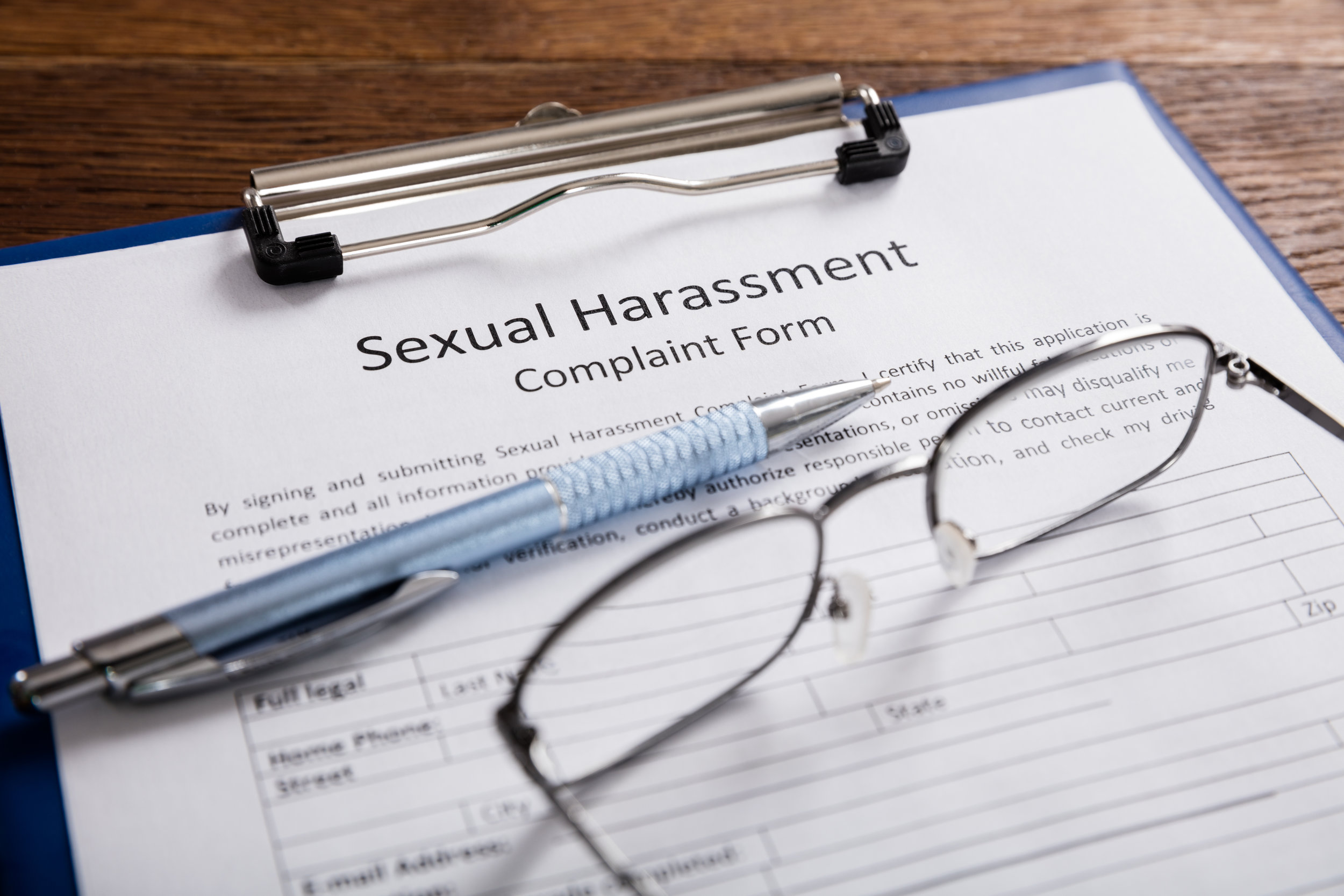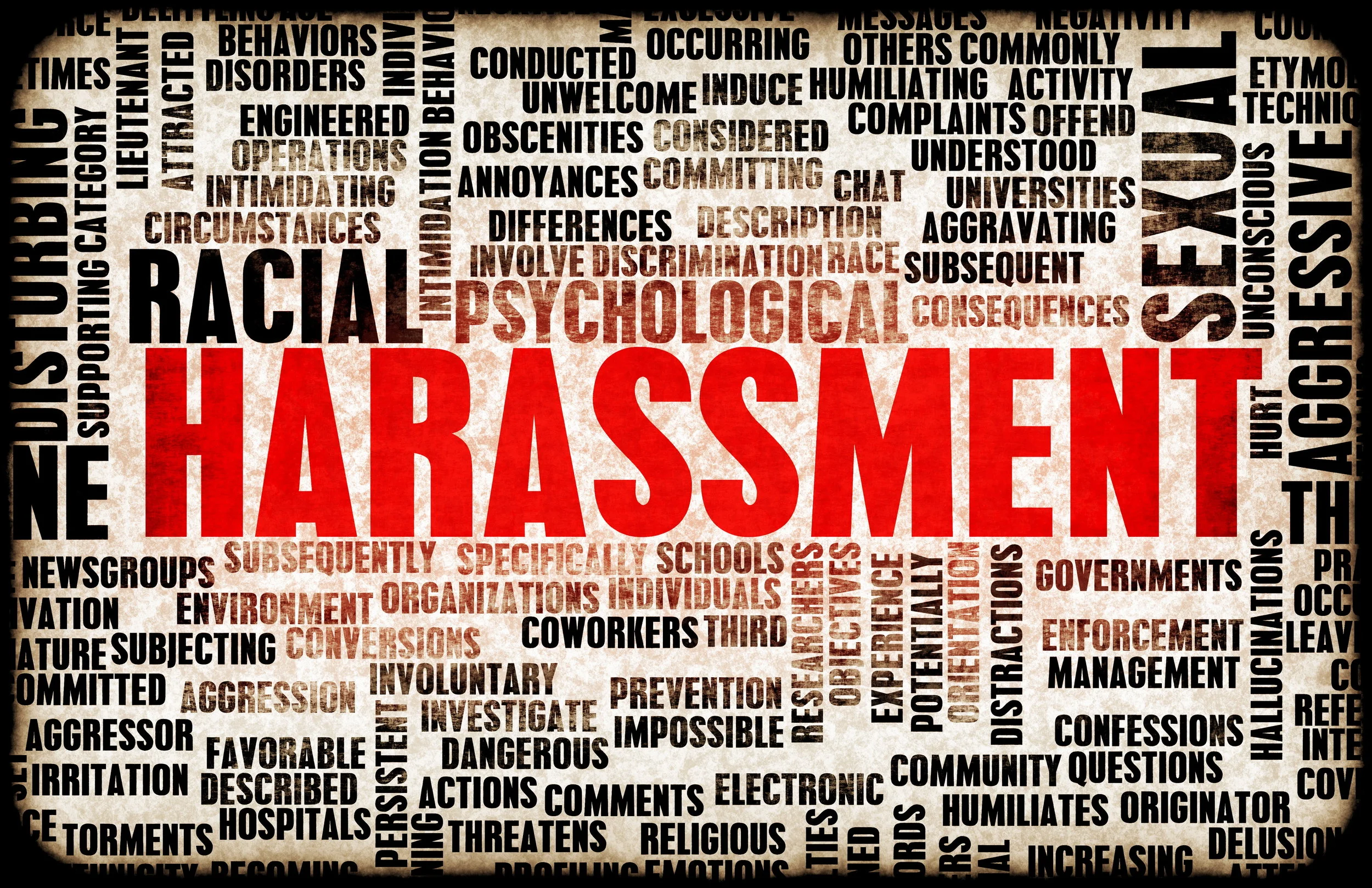
Industry News

CA Anti-Harassment Training Deadline Quickly Approaches
Author, Alyssa Burley, Media Communications and Client Services Manager, Rancho Mesa Insurance Services, Inc.
Lately, we've been getting a lot of questions about California's required anti-harassment training, who has to complete it, when it's due, and how much it costs. This article will clear up any confusion; covering the history of the requirement, training conditions and deadlines, and the online training offered to Rancho Mesa clients.
Author, Alyssa Burley, Media Communications and Client Services Manager, Rancho Mesa Insurance Services, Inc.
Lately, we've been getting a lot of questions about California's required anti-harassment training, who has to complete it, when it's due and how much it costs.
In September 2004, Assembly Bill 1825 set in motion the sexual harassment prevention training requirement for many California supervisors. In September 2018, former California Governor Jerry Brown approved Senate Bill 1343 (SB 1343) which expanded the requirement and launched a series of anti-harassment bills that now require those who employ “five or more employees, including temporary or seasonal employees, to provide at least two hours of anti-harassment training to all supervisory employees and at least one hour of anti-harassment training to all non-supervisory employees.”
History of the Requirement
Over the last several years, additional senate bills have been passed that modifies or clarifies the SB 1343 training requirements. Instead of giving you a play-by-play on how each bill has changed the requirements, I'm just going to tell you what is required as of today, November 2020.
You've probably noticed that we now refer to this new training as “anti-harassment training” instead of the old term, “sexual harassment prevention training.” The change came as a result of several bills that expanded the required content to include abusive conduct, unlawful employment practices of discrimination, and harassment of both a sexual and non-sexual nature. So, the anti-harassment training for California managers replaces previous versions of the sexual harassment and abusive conduct prevention training, developed prior to the passage of SB 1343 and Senate Bill 1300 (SB 1300).
For more information on the progression of the current requirements, read “California SB 1343 Expands Sexual Harassment Training Requirements,” published November 15, 2018, “California SB 1343 Expands Sexual Harassment and Abusive Conduct Prevention Training Requirements,” published on January 17, 2019, “Ensuring CA Sexual Harassment and Abusive Conduct Training is SB 1343 Compliant,” published on February 7, 2019, “Rancho Mesa Offers Free CA-Required Supervisor and Employee Anti-Harassment Training” published on May 8, 2019, “Providing Anti-Harassment Training Is the Employer’s Responsibility,” published on August 22, 2019, and “Senate Bill 778 Extends Anti-Harassment Training Deadline,” published on September 12, 2019.
Training Requirements and Deadlines
To make a long story short, for employers with five or more employees, supervisory employees must take the two-hour anti-harassment training every two years and non-supervisory employees must take the one-hour anti-harassment training every two years. This sounds simple enough. However, since we had multiple bills that added content to the requirements and extended deadlines (Senate Bill 778), it's not necessarily straightforward.
For example, if you have a supervisory employee who completed the old sexual harassment and abusive conduct prevention training in 2019, their next anti-harassment training is due in 2021. However, if they took any similar trainings prior to 2019, they must complete the new anti-harassment training by January 1, 2021. This also applies to non-supervisory employees. If a non-supervisory employee took the training in 2019, their next due date will be in 2021. However, if the non-supervisory employee has not taken the training or took a similar training prior to 2019, they are required to complete the anti-harassment training no later than January 1, 2021.
New employees must be trained within six months of hire and temporary employees must be trained within 30 days of hire.
Online Training
Rancho Mesa offers its clients free 100% online anti-harassment training for both supervisory employees and non-supervisory employees.
“It’s amazing Alyssa and her team have trained nearly 7,000 of our clients’ employees over the last 24 months and have been able to do that at no cost to them,” says Dave Garcia, President of Rancho Mesa. “Yes, it’s expensive, but we just feel it’s doing the right thing for our clients.”
The online training can be accessed from a computer, tablet or smartphone. This means our clients can get their required trainings from anywhere with an internet connection.
“It’s not only the cost savings for our clients that’s important, it’s also the way we are able to do the training utilizing any internet connected device,” says Garcia. “Our clients’ productivity isn’t impacted by having to bring their workforce into a training area and out of the field, creating a loss of productivity. Additionally, with COVID-19, large training meetings would not be permitted.”
Since the anti-harassment training is completed online through the Risk Management Center, it provides automated recordkeeping and offers rescheduling to ensure as soon as an employee completes the training, they can be automatically rescheduled to complete the training again in two years. It also allows administrators to archive employee training records when an employee leaves the company and reactivate the records if they are rehired.
Recordkeeping
Recordkeeping for anti-harassment training is important when there is an allegation of harassment or if an employee reports the employer for non-compliance. The Department of Fair Employment and Housing (DFEH) “accepts complaints from employees that their employers have not complied with the law." So, make sure you are providing the training and keeping records. It is also a best practices to train all employees, regardless if they have a certificate of completion from another employer, since it's the current employer's responsibility to make sure the employee is trained.
We offer an on-demand webinar that explains how to setup your employees in the Risk Management Center and assign the anti-harassment training.
For questions about the anti-harassment training requirements or to enroll your supervisors and employees, contact Rancho Mesa’s Client Services Department at (619) 438-6869 or send an email to aburley@ranchomesa.com.
Senate Bill 778 Extends Employee Anti-Harassment Training Deadline
Author, Alyssa Burley, Media Communications and Client Services Manager, Rancho Mesa Insurance Services, Inc.
Newly passed Senate Bill 778 (SB 778) extends the deadline set in Senate Bill 1343 for California’s mandatory Anti-Harassment Training from January 1, 2020 to January 1, 2021. The bill also addresses concerns about supervisory employees and clarifies when temporary workers must be trained. California Governor Newsom signed the bill into law on August 30, 2019, which included an urgency clause that allows the bill to go into effect immediately.
Author, Alyssa Burley, Media Communications and Client Services Manager, Rancho Mesa Insurance Services, Inc.
Newly passed Senate Bill 778 (SB 778) extends the deadline set in Senate Bill 1343 for California’s mandatory Anti-Harassment Training from January 1, 2020 to January 1, 2021. The bill also addresses concerns about supervisory employees and clarifies when temporary workers must be trained. California Governor Newsom signed the bill into law on August 30, 2019, which included an urgency clause that allows the bill to go into effect immediately.
What SB 778 Means to CA Employers
The changes made by SB 778 not only extends the deadline for non-supervisory employee Anti-Harassment training, but also allows supervisory employees to stay on their existing two-year training schedule. For example, if a supervisory employee completed Anti-Harassment training in 2018, their next training, with the SB 1343 compliant content, will be due in 2020 - two years from their last training date, which is before the new deadline. Likewise, if a supervisory employee was trained in 2019, their next training due date will be in 2021.
Non-supervisory employees will need to complete their initial 1-hour Anti-Harassment training by January 1, 2021. For those who have already taken the training in 2019, we recommend they maintain their two-year schedule, and complete the training again in 2021.
Both supervisory and non-supervisory employees must be trained within six months of hire. However, temporary or seasonal workers who are hired for less than six months must be trained within 30 days of hire.
For questions about this training requirement or to learn how to enroll your supervisors and employees, register for the “How to Enroll Supervisors and Employees in the Online Anti-Harassment Training” webinar or contact Rancho Mesa’s Client Services Department at (619) 438-6869.
Employers Prepare As Reports of Sexual Harassment Spike
Author, Alyssa Burley, Media Communications and Client Services Manager, Rancho Mesa Insurance Services, Inc.
Americans are all too familiar with the #MeToo movement that has shed light on sexual harassment in the workplace. Outspoken celebrities and prominent public figures have brought this topic to the forefront in the media. With all the publicity surrounding sexual harassment allegations, people are empowered to speak out and report unwanted behaviors in the workplace. This leaves many employers asking what they can do to prevent harassment and prepare for possible harassment allegations.
Editor’s Note: This article was originally published on June 27, 2019 and has been updated for accuracy on September 12, 2019.
Author, Alyssa Burley, Media Communications and Client Services Manager, Rancho Mesa Insurance Services, Inc.
Americans are all too familiar with the #MeToo movement that has shed light on sexual harassment in the workplace. Outspoken celebrities and prominent public figures have brought this topic to the forefront in the media. With all the publicity surrounding sexual harassment allegations, people are empowered to speak out and report unwanted behaviors in the workplace. This leaves many employers asking what they can do to prevent harassment and prepare for possible harassment allegations.
Charges Alleging Sexual Harassment FY 2010 - FY 2018
- Reports
- Reports
The United States Equal Employment Opportunity Commission (EEOC) released its “Charges Alleging Sexual Harassment FY 2010 - FY 2018” report. The data shows from 2010 to 2017 reports of alleged sexual harassment incidents actually declined 15.7%, over the seven-year span. However, based on the data, it is difficult to know if incidents of sexual harassment declined or just the reporting of incidents declined.
However, during 2018 there was an increase of 13.6% in alleged sexual harassment incidents, which accounted for over 7,600 claims at a cost of $56.6 million dollars in damages.
| Year | 2010 | 2011 | 2012 | 2013 | 2014 | 2015 | 2016 | 2017 | 2018 |
|---|---|---|---|---|---|---|---|---|---|
| Percentage Change Over Previous Year Number of Charges |
NA 7,944 |
-1.4% 7,809 |
-3% 7,571 |
-4.2% 7,256 |
-5.7% 6,862 |
-0.6% 6,822 |
-0.9% 6,758 |
-0.9% 6,696 |
13.6% 7,609 |
| Percentage Change Over Previous Year Damages (In Millions) |
NA $41.2 |
9.5% $45.1 |
-4.7% $43 |
3.7% $44.6 |
-21.5% $35 |
31.4% $46 |
-11.5% $40.7 |
13.8% $46.3 |
22.2% $56.6 |
EEOC. Charges Alleging Sexual Harassment FY 2010 - FY 2018. https://www.eeoc.gov/eeoc/statistics/enforcement/sexual_harassment_new.cfm.
California’s Senate Bill 1343 (SB 1343) now requires employers with 5 or more employees to provide 2-hour Anti-Harassment training to supervisors and 1-hour training to employees, every two years. As part of this new requirement, the initial training must be completed for all employees and supervisors by January 1, 2021, according to Senate Bill 778, approved on August 30, 2019, which extends the training due date. The changes made by SB 778 not only extends the due date to January 1, 2021, but also addresses concerns about supervisory employees and clarifies when temporary workers must be trained. Read about the changes here.
It’s our belief that as more people are trained to recognize harassment in its many forms, we expect to see the number of reported alleged harassment incidents increase in the coming years. So, what should California employers do to mitigate this increased risk?
Course of Action
For employers, the best course of action is two-fold. Make sure you are compliant by training your employees and supervisors; second, make sure you have Employment Practices Liability Insurance (EPLI) as part of your risk management portfolio.
Training Supervisors and Employees
Understanding the confusion, time and financial burden SB 1343 puts on all California employers, Rancho Mesa offers its clients SB 1343-compliant free online supervisor and employee Anti-Harassment training. Supervisor and employee trainings can be completed 100% online via a computer, tablet or mobile device.
California employers who are not clients of Rancho Mesa can find this training through 3rd party vendors that work in the Human Resource arena and will need to contract with them directly to meet this requirement.
Employment Practices Liability Insurance (EPLI)
EPLI is “a type of liability insurance covering wrongful acts arising from the employment process. The most frequent types of claims covered under such policies include: wrongful termination, discrimination, sexual harassment, and retaliation,” according to the International Risk Management Institute, Inc.
If your organization currently does not have EPLI, or you are unsure about what is covered in your policy, we recommend you contact your insurance broker or call us to get clarification. With the projected increase in these types of claims, not having this vital coverage in place could expose your company to severe negative financial impacts.
Whether the increase in reported alleged sexual harassment incidents is a result of more incidents or simply more people feeling comfortable reporting the harassment, every employer should be prepared to properly train their employees and supervisors, while actively working to prevent and stop all forms of harassment in the workplace.
Contact the Rancho Mesa Insurance Services Client Services Department at (619) 438-6869 or aburley@ranchomesa.com for more information about free anti-harassment training for supervisors and employees, or learn more through our other articles on the topic.
Alyssa Burley is NOT a licensed insurance professional. Informational statements regarding insurance coverage are for general description purposes only. Contact a licensed insurance professional for specific questions.
California SB 1343 Expands Sexual Harassment and Abusive Conduct Prevention Training Requirements
Author, Alyssa Burley, Client Services Coordinator, Rancho Mesa Insurance Services, Inc.
In September 2018, former California Governor Jerry Brown approved Senate Bill 1343 (SB 1343) which expands the requirements for Sexual Harassment and Abusive Conduct Prevention training within the workplace.
Editor’s Note: This article was originally published on January 17, 2019 and has been updated for accuracy on September 12, 2019.
Author, Alyssa Burley, Client Services Coordinator, Rancho Mesa Insurance Services, Inc.
In September 2018, former California Governor Jerry Brown approved Senate Bill 1343 (SB 1343) which expands the requirements for Sexual Harassment and Abusive Conduct Prevention training within the workplace.
New Requirements
Prior to SB 1343, California Assembly Bill 1825, Assembly Bill 2053, and State Bill 396, required employers with 50 or more employees to provide supervisors with sexual harassment and abusive conduct prevention training every two years. SB 1343 drops the minimum number of employees to 5 and adds a requirement for training nonsupervisory employees.
According to Senate Bill 778, passed on August 30, 2019 which expands the training deadline, “By January 1, 2021, an employer having five or more employees shall provide at least two hours of classroom or other effective interactive training and education regarding sexual harassment to all supervisory employees and at least one hour of classroom or other effective interactive training and education regarding sexual harassment to all nonsupervisory employees in California. Thereafter, each employer covered by this section shall provide sexual harassment training and education to each employee in California once every two years.”
The changes made by SB 778 not only extends the due date to January 1, 2021, but also addresses concerns about supervisory employees and clarifies when temporary workers must be trained. Read about the changes here.
Providing Training
The bills also requires the California Department of Fair Employment and Housing (DFEH), “develop or obtain two online training courses on the prevention of sexual harassment in the workplace. The course for nonsupervisory employees shall be one hour in length and the course for supervisory employees shall be two hours in length.” The department “expects to have such trainings available by late 2019,” according to a document provided by the DFEH. The online trainings are expected to be free for employers.
“In the interim period, DFEH is offering a sexual harassment and abusive conduct prevention toolkit, including a sample sexual harassment and abusive conduct prevention training. Employers may use the training in conjunction with an eligible trainer to provide sexual harassment and abusive conduct prevention training,” according to the DFEH.
An eligible trainer qualified to conduct this training would be:
Attorneys who have been members of the bar of any state for at least two years and whose practice includes employment law under the Fair Employment and Housing Act or Title VII of the federal Civil Rights Act of 1964;
Human resource professionals or harassment prevention consultants with at least two years of practical experience in:
Designing or conducting training on discrimination, retaliation, and sexual harassment prevention;
Responding to sexual harassment or other discrimination complaints;
Investigating sexual harassment complaints; or
Advising employers or employees about discrimination, retaliation, and sexual harassment prevention.
Law school, college, or university instructors with a post-graduate degree or California teaching credential and either 20 hours of instruction about employment law under the FEHA or Title VII.
Note, DFEH does not issue licenses nor certificates validating a person’s qualifications to teach sexual harassment prevention training classes.
Other training options include the online Anti-Harassment training Rancho Mesa offers to all of its clients’ supervisors and employees throughout the country in response to California’s Senate Bill 1343 (SB 1343) and Senate Bill 1300 (SB 1300).
We also can recommend Equal Parts Consulting to provide in-person supervisor and/or employee training to those in San Diego and Orange Counties. To receive a discounted rate, please let them know you are a Rancho Mesa Insurance client.
Rancho Mesa Insurance will continue to monitor training options as they become available.
For questions about this training requirement or to learn how to enroll your supervisors and employees, register for the “How to Enroll Supervisors and Employees in the Online Anti-Harassment Training” webinar or contact Rancho Mesa’s Client Services Department at (619) 438-6869.
Resources
California Department of Fair Employment and Housing. "Sexual Harassment and Abusive Conduct Prevenetion Training Information for Employers.”
https://www.dfeh.ca.gov/wp-content/uploads/sites/32/2018/12/SB_1343_FAQs.pdf
California Department of Fair Employment and Housing. “Sexual Harassment FAQs.”
https://www.dfeh.ca.gov/resources/frequently-asked-questions/employment-faqs/sexual-harassment-faqs/
California SB 1343 Expands Sexual Harassment Training Requirements
Author, Alyssa Burley, Client Services Coordinator, Rancho Mesa Insurance Services, Inc,
On September 30, 2018, California Governor Jerry Brown, approved Senate Bill 1343 (SB 1343), which expands rules for required sexual harassment prevention training for businesses.
Currently, employers with 50 or more employees must provide supervisors with sexual harassment prevention training every two years. By January 1, 2020, employers with 5 more employees must provide at least 2 hours of sexual harassment prevention training and at least 1 hour of training to non-supervisory employees. The trainings are required every 2 years.
Editor’s Note: This article was originally published on November 15, 2018 and has been updated for accuracy on September 12, 2019.
Author, Alyssa Burley, Client Services Coordinator, Rancho Mesa Insurance Services, Inc,
On September 30, 2018, California Governor Jerry Brown, approved Senate Bill 1343 (SB 1343), which expands rules for required sexual harassment prevention training for businesses.
According to the passing of Senate Bill 778, approved on August 30, 2019, by January 1, 2021, employers with 5 more employees must provide at least 2 hours of sexual harassment prevention training and at least 1 hour of training to non-supervisory employees every 2 years.
The bill requires “the Department of Fair Employment and Housing (DFEH) to develop or obtain 1-hour and 2-hour online training courses on the prevention of sexual harassment in the workplace, as specified, and to post the courses on the department’s Internet Web site. The bill also requires the department to make existing informational posters and fact sheets, as well as the online training courses regarding sexual harassment prevention, available to employers and to members of the public in specified alternate languages on the department’s Internet Web site.” However, the DFEH currently does not have the required training materials available, as of yet.
Rancho Mesa offers free Anti-Harassment training to all of its clients’ supervisors and employees throughout the country in response to California’s Senate Bill 1343 (SB 1343) and Senate Bill 1300 (SB 1300). The deadline for this training is January 1, 2021, according to Senate Bill 778.
Until the DFEH releases its supervisor and employee sexual harassment prevention trainings, Rancho Mesa recommends devising a training schedule/plan for your supervisors and employees in order to meet the January 1, 2021 deadline.
Resources:
legislature.ca.gov: SB-1343 Employers: sexual harassment training: requirements
legislature.ca.gov: SB-778 Employers: sexual harassment training: requirements
For questions about this training requirement or to learn how to enroll your supervisors and employees, register for the “How to Enroll Supervisors and Employees in the Online Anti-Harassment Training” webinar or contact Rancho Mesa’s Client Services Department at (619) 438-6869.





